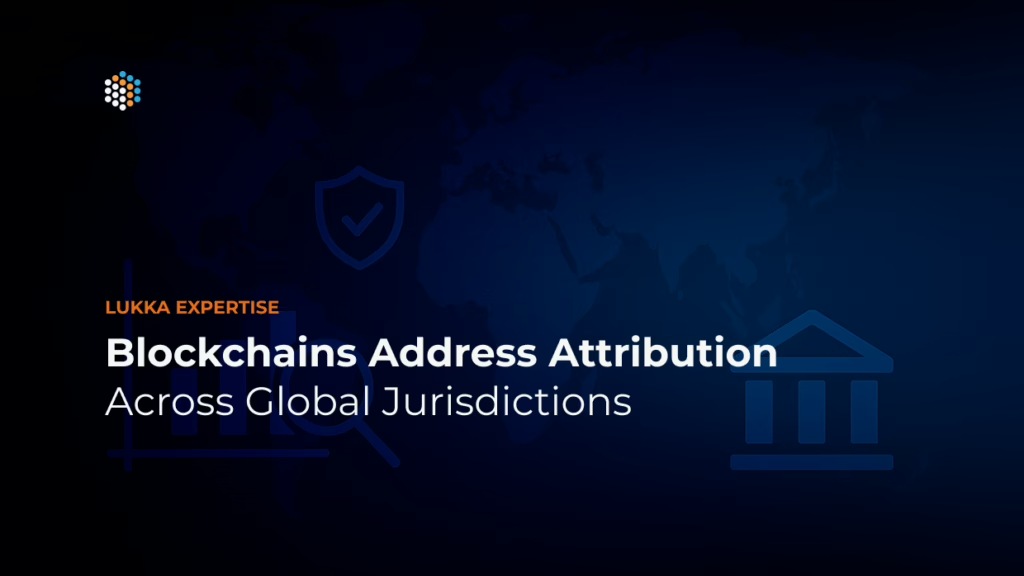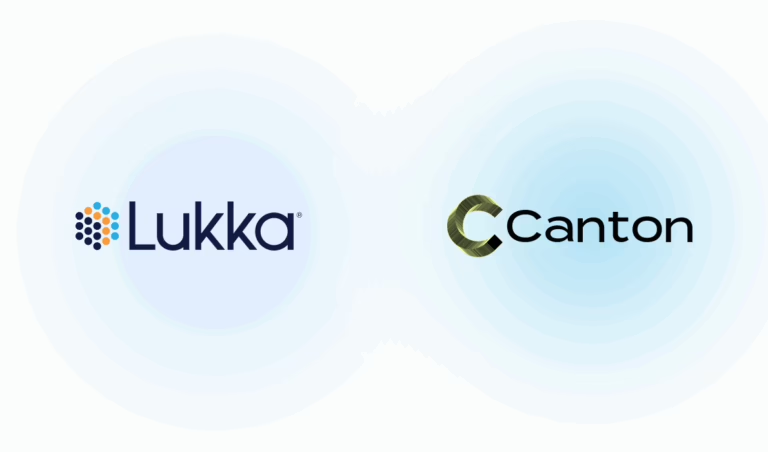Wallet address attribution data from Lukka provides a detailed view of the jurisdictional distribution of Virtual Asset Service Providers (VASPs) globally. From January 2023 to December 2024, we extracted 391 million unique addresses, allowing us to identify where digital asset businesses are incorporated and where they obtain operational licenses.
Our data shows that while they are unique addresses, they are in many cases attributed to multiple jurisdictions simultaneously. This is due to the fact that VASPs can be incorporated and/or licensed in several countries at the same time.
Examination of blockchain address distribution reveals patterns between incorporation and licensing across financial markets
Incorporation and Licensing Distribution
In our analysis, we document differences between incorporation and licensing jurisdictions across 101 countries. The data shows distinct patterns in where VASPs maintain incorporation presence versus where they obtain operational licenses.
Turkey (Türkiye) presents a notable case in the data with addresses linked to incorporated entities representing 2.3% of total addresses but no addresses associated with licensed operations. This represents one of the largest gaps between incorporation and licensing attribution in the dataset. However, according to the Turkish Capital Markets Board (SPK), nearly 90 VASPs have submitted applications to obtain licenses as indicated on their official website
Major Jurisdictions and Global Distribution
The United States maintains the highest attribution rates for both incorporation (4.2% of total addresses) and licensing (4.0%). This represents one of the most balanced distributions between incorporation and licensing among major jurisdictions.
Singapore shows a different pattern, with incorporation attribution (2.6%) exceeding licensing attribution (1.2%). This indicates a more than two-fold difference between corporate presence and operational licensing in this jurisdiction.
The United Kingdom demonstrates a similar pattern to Singapore, with incorporation attribution (2.4%) substantially higher than licensing attribution (1.3%).
Canada presents a contrasting case where licensing attribution (2.8%) exceeds incorporation attribution (2.5%). This makes Canada one of the few major jurisdictions where operational licensing exceeds corporate incorporation in the data.
Offshore Centers and Emerging Markets
The Cayman Islands shows a particularly large disproportion in the data, with incorporation attribution at 2.2% of total addresses while licensing attribution reaches only 0.1%. This represents one of the largest proportional differences between incorporation and licensing in the dataset.
Brazil’s data indicates incorporation attribution of 2.1% and licensing attribution of 1.0%, showing a significant difference between corporate presence and operational licensing registration in this emerging market.
Lithuania appears in the data with a disproportionately high attribution rate relative to its population size, indicating a substantial presence in the digital assets sector despite being a smaller European economy.
Regional Address Attribution Patterns
North American jurisdictions show relatively balanced address attribution between incorporation and licensing. The United States (4.2% incorporation, 4.0% licensing) and Canada (2.5% incorporation, 2.8% licensing) both demonstrate comparatively close alignment between these two metrics in the data.
European jurisdictions show more varied patterns. The United Kingdom’s gap between incorporation (2.4%) and licensing (1.3%) contrasts with Italy’s reverse pattern (2.0% incorporation, 2.2% licensing). Ireland follows the UK pattern with higher incorporation (2.1%) than licensing (1.1%).
In the Asia-Pacific region, Singapore demonstrates a large difference between incorporation (2.6%) and licensing (1.2%), while Australia shows an exactly balanced approach (2.2% for both categories). This indicates different jurisdictional profiles within the same geographic region.
Top 10 Jurisdictions by Blockchains Address Attribution
Top 10 for Incorporation
Rank | Country | % of Total (391M) |
1 | USA | 4.2% |
2 | Singapore | 2.6% |
3 | Canada | 2.5% |
4 | UK | 2.4% |
5 | Türkiye | 2.3% |
6 | Australia | 2.2% |
7 | Cayman Islands | 2.2% |
8 | Brazil | 2.1% |
9 | Ireland | 2.1% |
10 | Italy | 2.0% |
Top 10 for Licensing
Rank | Country | % of Total (391M) |
1 | USA | 3.96% |
2 | Canada | 2.83% |
3 | Italy | 2.25% |
4 | Australia | 2.19% |
5 | France | 2.02% |
6 | Spain | 2.02% |
7 | Japan | 1.90% |
8 | Netherlands | 1.53% |
9 | Lithuania | 1.49% |
10 | UAE | 1.35% |
Note: The percentages below represent the proportion of the total 391M unique addresses attributed to each jurisdiction. These percentages should not be summed as the same addresses may be attributed to multiple jurisdictions simultaneously.
Regulatory Tier Data and Analysis
Jurisdictions classified as Tier 1 regulated markets show incorporation attribution at 24.7% and licensing attribution at 23.0%. This represents the smallest proportional difference between the two categories among all tiers.]
In Tier 2 “light-touch” jurisdictions, the data shows incorporation attribution at 8.6% and licensing attribution at 3.8%, indicating a wider gap between corporate presence and operational licensing in these jurisdictions.
Tier 3 high-risk jurisdictions demonstrate the largest proportional difference, with incorporation attribution at 3.1% compared to licensing attribution of just 0.05%. This represents more than a 60-fold difference between incorporation and licensing attribution in these jurisdictions.
Unclassified jurisdictions account for 29.5% of incorporation attribution and 14.2% of licensing attribution, showing a substantial but less extreme difference than Tier 3 jurisdictions.
The data indicates that as jurisdictions move from higher regulatory tiers (Tier 1) to lower tiers (Tier 3), the gap between incorporation and licensing attribution generally increases.
Anti-Money Laundering Risk Jurisdiction Data
Lukka’s data shows minimal VASP blockchain address attribution to jurisdictions on the Financial Action Task Force (FATF) grey list. Countries designated by FATF as requiring increased monitoring show negligible presence in the attribution data.
Similarly, the Basel Institute’s five highest-risk countries collectively account for less than 0.001% of total address attribution in the dataset. This indicates very limited blockchain address attribution to jurisdictions identified as presenting elevated money laundering risks.
Market Activity vs. Jurisdictional Distribution
The data indicates differences between user concentration and licensing presence in certain markets. Countries with significant digital asset user populations like India and Nigeria show limited VASP licensing attribution in the dataset.
Major financial centers including the United States, United Kingdom, and Singapore maintain substantial representation in both incorporation and licensing categories, indicating alignment between user activity and regulatory coverage in these jurisdictions.
This highlights the jurisdictional gaps where substantial user activity occurs in regions with limited licensing presence. This creates differences between where digital asset users are located and where the VASPs serving them maintain regulatory licensing.
Implications for Stakeholders
The jurisdictional patterns in the data have relevance for several stakeholder groups. For regulatory authorities, the data identifies jurisdictions where incorporation presence significantly exceeds licensing presence, which may indicate areas requiring additional supervisory attention.
For market participants, it provides visibility into jurisdictional distribution across the digital assets sector, allowing for more informed assessment of the regulatory environment across different regions.
For policy development, our data highlights differences in jurisdictional coverage that may benefit from more coordinated international approaches to digital assets regulation.
Important Data Interpretation Disclaimer
This analysis requires careful interpretation due to the unique nature of blockchain address attribution data:
1. Non-Additive Measurement: The blockchain address counts presented in this analysis cannot be summed across jurisdictions. A single Virtual Asset Service Provider (VASP) may be incorporated and/or licensed in multiple countries, meaning its associated blockchain addresses are counted in each relevant jurisdiction. For example, if a VASP with 1 million addresses is incorporated in both Singapore and the Cayman Islands while being licensed in the US, these same 1 million addresses would appear in the counts for all three jurisdictions.
2. Percentage Calculation Base: All percentages are calculated relative to the total 391 million unique addresses in the dataset for the period January 2023 to December 2024. Due to the multiple-counting phenomenon described above, the sum of these percentages across jurisdictions will exceed 100%. These percentages indicate jurisdictional presence rather than market share and should not be added together.
3. Valid Comparisons: While direct summation across jurisdictions is inappropriate, comparisons between incorporation and licensing percentages within the same jurisdiction are valid and revealing. These comparisons show jurisdictional differences as demonstrated by cases like Turkey (Türkiye).
4. Data Purpose: This analysis identifies patterns of regulatory distribution and potential gaps in oversight, not market sizing by jurisdiction. The differences between incorporation and licensing jurisdictions show structural patterns in the global digital assets ecosystem.
5. Methodological Transparency: The original data source (Lukka) employs attribution methodologies that link blockchain addresses to VASPs based on technical and operational indicators. These VASPs are then mapped to their jurisdictional presence for both incorporation and licensing purposes.



